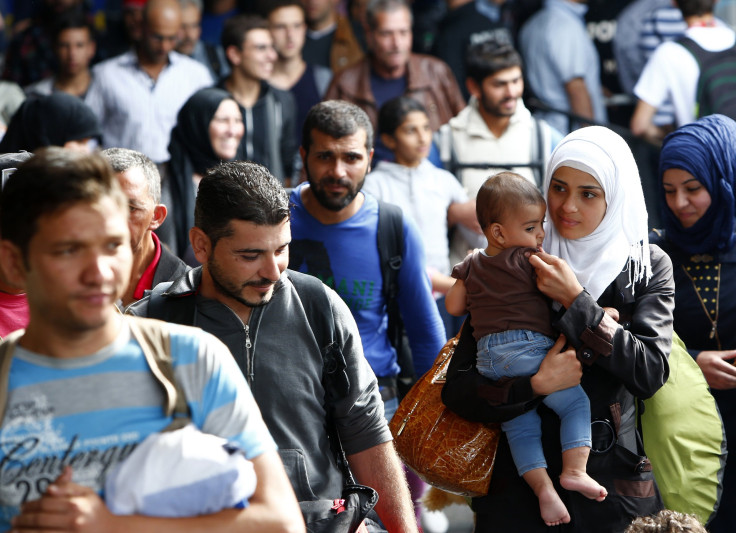Germany Nearing Refugee Capacity After Huge Influx Weighs On Resources, Officials Warn

With almost 15,000 refugees arriving in Munich this weekend, German officials warned Sunday that the country's resources in dealing with them close to capacity, according to Agence France-Presse. As a result, the nation is reinstating border controls between Austria and itself, AFP reported.
Germany became the prime destination for refugees looking for asylum in the European Union after Chancellor Angela Merkel relaxed rules on accepting them this year. More than 450,000 refugees have arrived in the country so far this year after completing the last leg of a perilous journey through Austria and Hungary. Germany expects another 350,000 refugees before the end of the year.
"Given the numbers from yesterday, it is very clear that we have reached the upper limit of our capacity," a Munich police representative said Sunday.
What irony: German officials confirm Islamists living in Europe are trying to recruit recently arrived refugees /1 http://t.co/YmOYTCYx7H
— Rukmini Callimachi (@rcallimachi) September 12, 2015Fueled by fears that Germany's asylum facilities could collapse, government ministers have said that something needs to be done to slow the number of refugees arriving in the country. Alexander Dobrindt, the federal minister of transport and digital infrastructure, said that "effective measures are necessary now to stop the influx." AFP quoted Dobrindt as saying in a statement Sunday, "That includes help for countries from where refugees are fleeing and also includes an effective control of our own borders, which also no longer works given the EU's complete failure to protect its external borders."
Bojan Pancevski, the EU correspondent for the Sunday Times in London, tweeted about Germany's moves in the wake of the influx of refugees this weekend:
#Germany mobilises police forces from across the country to secure southern borders; train service to #Austria likely to stop #refugeecrisis
— Bojan Pancevski (@bopanc) September 13, 2015Most refugees have been entering the EU by sea through Greece or by land through Hungary (via Turkey). Accordingly, Germany has called on Greece to do more to control the EU's borders.
Home-affairs ministers of the EU will hold emergency talks Monday as "the situation of migration phenomena outside and inside the European Union has recently taken unprecedented proportions," European Commission President Jean-Claude Juncker said.
In addition, the Organization of Islamic Cooperation will hold an emergency meeting Sunday to discuss what its response to the refugee crisis should be. Wealthy Gulf countries have come under scrutiny recently for being unwilling to accept any refugees, while Jordan, Lebanon and Turkey have sheltered millions of them.
© Copyright IBTimes 2025. All rights reserved.






















